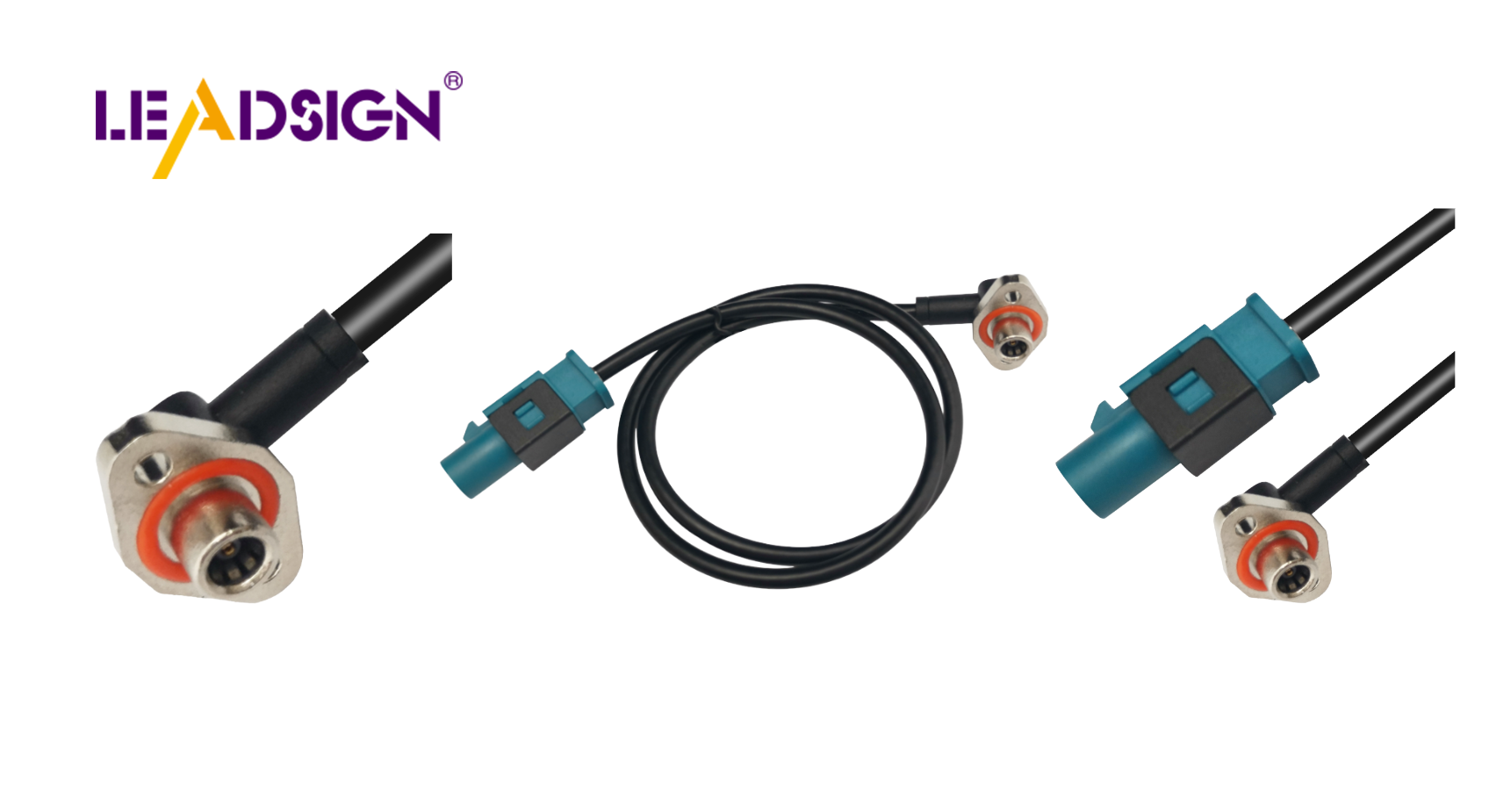Guide to Choosing the Right Rigid Coax for Automotive Wiring Connector Types

Picking the right cable for your car is important. It helps your car's wires work well. Rigid coax is a great choice for cars. It is strong and dependable, which is needed for today's cars. Choosing the right cable improves signal quality and lessens problems. This choice affects things like your car's radio and GPS. So, choose carefully to keep your car working well.
Understanding Rigid Coax
What is Rigid Coax?
Rigid coax is a special cable. It has a solid outside and a middle wire. These are separated by a material called dielectric. This setup stops signals from getting lost. It's great for high-frequency uses. Unlike bendy cables, rigid ones have better electrical work because they are stable. You see them where good performance is needed, like in car wiring.
Benefits of Rigid Coax in Automotive Wiring
Choosing rigid coax for car wiring has many perks:
Durability: Rigid coax is tough. It stays strong in bad conditions, which is important for cars.
Signal Quality: Its design keeps signals clear. Your car's GPS and radio work better with it.
Reliability: It gives steady performance. Car systems stay reliable over time with it.
Compatibility: Rigid coax fits well with different car connectors, making connections easy.
Important Things to Think About
Impedance
When choosing a rigid coax for your car, impedance matters. Impedance shows how much the cable slows down signals. Match the coax's impedance with your car system. This helps signals flow smoothly and stops signal loss. Most cars use 50 Ohm cables. Make sure your coax matches this for smooth running.
Attenuation
Attenuation is about how signals weaken over distance in the cable. Pick a cable with low attenuation to keep signals strong. Frequency and length affect attenuation. Higher frequencies and longer cables lose more signal. Look for good shielding and materials to lower attenuation, keeping systems working well.
Environmental Conditions
Cars face different weather and roads, so cables must be tough. Check the temperature range your cable can handle. Some work in very cold or hot places. Think about moisture and dust too. A strong outer jacket protects against these things, keeping cables reliable anywhere you drive.
Connector Compatibility
When picking a rigid coax for your car, matching connectors is key. Ensure the cable connectors fit your car's system well. This gives a tight fit and good performance.
Match the Impedance: Most cars use 50 Ohm cables. Your coaxial cable should match this to avoid losing signals. Mixing impedances can hurt signal quality.
Check the Connector Type: Cars may have different connector types. FAKRA connectors are common in cars. They are strong and handle tough conditions well. Make sure your cable fits these connectors.
Consider the Frequency Range: Your cable should support your car's frequency range. This helps all signals, like GPS and radio, work well.
Look for Secure Connections: Choose cables with screw-on ends for better reliability than push-fit ones. A secure connection stops accidental disconnections and keeps signals clear.
Evaluate the Connector Material: The connector material affects how long it lasts and works well. Good materials resist rust and wear, keeping connections strong over time.
By focusing on these points, you make sure your rigid coaxial cable fits perfectly with your car's wiring system, boosting performance and extending electronics life.
Comparing Rigid Coax Types for Cars
Picking the right rigid coax for your car is important. Different types have special benefits. Knowing these helps you choose well. Let's look at some popular ones.
Popular Rigid Coax Types
RG316: This type is flexible and useful. It works well in high-frequency spots, making it great for tight spaces. RG316 gives good signals, perfect for many car needs.
RG58: It's known for being bendy and useful. RG58 fits common communication needs well. It's a good choice if you want easy use and performance.
RG393: Need something strong? RG393 is heavy-duty and high-performance but less bendy or connector-friendly.
RG214: Strong and reliable, it's great for high-power uses without losing performance in tough places.
RG8 and RG213: These are bigger cables with thick centers, best for demanding uses needing strong signals.
Cost vs. Performance
When picking a rigid coax, think about cost vs performance:
RG316 and RG58: These are cheaper but work well for daily car tasks without costing much.
RG393 and RG214: They cost more but perform better in harsh places, saving money on fixes later.
RG8 and RG213: Mid-priced with great signal quality; good if you need balance between price and performance.
In short, knowing different rigid coax types helps you decide smartly. Think about what your car needs and pick one that fits your budget too. This way, your car's electronics work best, keeping you connected safely.
Choosing the right cable is key for your car. It makes sure things like GPS and radio work well. Keep these in mind: impedance, signal weakening, weather, and connector fit. These help you choose the best cable.
Here are some easy tips:
Match the cable's impedance to your car.
Pick cables that lose less signal.
Make sure cables handle your driving weather.
Check connectors fit tightly.
Follow these steps to make your car's wiring better and stronger.
See Also
Why FAKRA Coaxial Cables Matter for Automotive Use
Benefits of HFM RF Connectors in Vehicle Technology
Harnessing the Potential of FAKRA Coaxial Connectors

